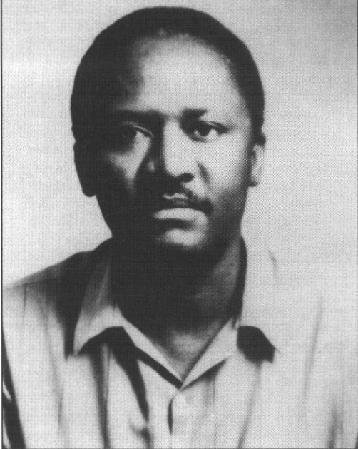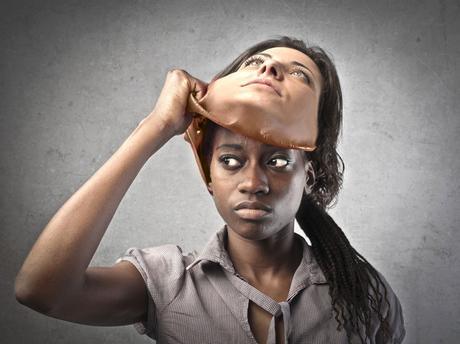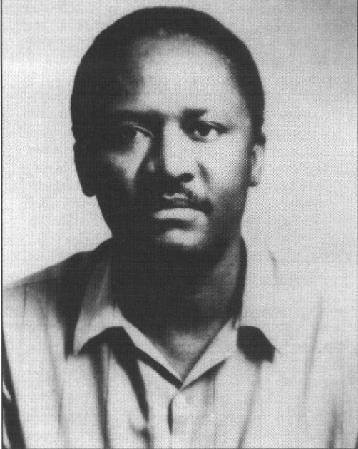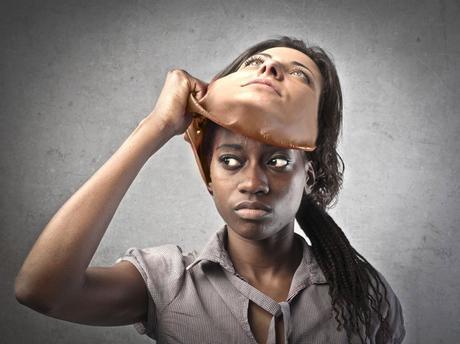
En la primera parte de este tema, había mencionado que en los poemas de Louis Bennet se podía encontrar la enorme influencia que el imperio tenía sobre los colonos. En esta ocasión, el poeta ugandés Okot p'Bitek trata en su poema La lengua de mi marido es amarga, cómo la educación británica se convierte en herramienta para rechazar y humillar cualquier cosa que recuerde a una cultura ancestral. Al igual que sucedía en el poema de Bennet, el protagonista del poema es un hombre llamado Ocol que siente una terrible vergüenza de su pasado africano, el cual considera inferior en todos los sentidos. Sin embargo, lo más interesante es que este poema está enlazado con otro titulado La mujer con la que comparto a mi marido, donde Okot da una vez más voz a la esposa, de nombre Lawino, para que ella misma explique cómo su marido la ha abandonado por una mujer africana que se ha dejado influenciar por la cultura europea: "Ocol ya no está enamorado de lo viejo Está enamorado de una chica moderna El nombre de la que es hermosa Es Clementine ¡Hermano, cuando veas a Clementine! La hermosa que aspira A parecerse a una mujer blanca."
El último verso prácticamente lo resume todo. Esta chica moderna absorbe la cultura europea no por el simple gusto de aprender, sino porque cree que eso hará que parezca una mujer blanca. Luego la razón por la que Ocol sienta cierto desprecio hacia su mujer, es porque ella le recuerda a su pasado africano. De hecho, seguramente os hayáis percatado del parecido que hay entre el nombre del marido y el propio autor del poema. Esto no es una simple coincidencia ya que ambos hombres, tanto el real como el ficticio, han recibido una educación europea. La diferencia aquí, es que Okot se siente orgulloso de sus orígenes africanos; Ocol solo ha aprendido la lengua inglesa para hablar desde el resentimiento y la amargura.

El racismo contra uno mismo es un hecho probado
Solamente he hablado sobre cuatro poetas de distinta procedencia, pero al igual que ellos, muchos otros poetas también han tratado de esa manera el tema del poder de Inglaterra y América. En cuestión de estatus, es obvio que ambos imperios han representado el sueño de escalar hacia una posición superior dentro de la sociedad, o incluso adquirir una nueva identidad. Y a pesar de todo, el origen histórico es una noción que se ha mantenido intacta.
Canto de Lawino
Todos los comentarios son bienvenidos.
http://www.chimpreports.com/makerere-pays-tribute-to-fallen-poet-okot-pbitek/
http://www.contioutra.com/racismo-no-facebook-um-pequeno-experimento/-----------

In the first part of this topic, I had mentioned that in Louise Bennet's poems we could find the great influence that the empire had over colonized people. This time, the ugandan poet Okot p'Bitek discuss in his poem My husband's tongue is bitter, how british education becomes a tool to reject and even humiliate everything that comes to be a reminder of the ancient culture. As it happens in Bennet's poem, here there is a man called Ocol, who feels a terrible embarrasment of his african past, considering it as something inferior in every aspect. However, the most interesting thing is that this poem is linked to another one called The woman with whom I share my husband, where Okot gives one more time a voice to the wife, whose name is Lawino, in order to make her explain how her husband has abandoned her for another african woman, who has been influenced by the european culture. "Ocol is no longer in love with the old type He is in love with a modern girl The name of the beautiful one Is Clementine Brother, when you see Clementine! The beautiful one aspires To look like a white woman."
The last verse summarizes everything. This modern girl absorbs the european culture not due to the pleasure of learning, but because she believes it will make her appear more like a white woman. Then, the reason why Ocol despises his wife so much, is because she also belongs to his african past. In fact, you probably noticed the similarity between the husband's name and the author's name. It's not a simple coincidence because both men, the fictional and the real one, have received an european education. The difference lies in the fact that Okot is proud of his origins; Ocol has only learned the english language to be bitter.

Racism against yourself is a proven fact
I have just talked about four poets of different ethnic origins, but like them, there are many other poets who have discussed the topic about the power of England and America. In terms of status, it's obvious that both empires have represented the dream to reach a higher position within society, or even adquiring a new identity. Despite this, origins and historical background are notions that have remained intact.
Okot P'Btek honoured by Makerere University
All comments are welcome.
Imagess source:
http://www.chimpreports.com/makerere-pays-tribute-to-fallen-poet-okot-pbitek/
http://www.contioutra.com/racismo-no-facebook-um-pequeno-experimento/-------------

